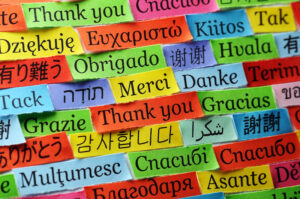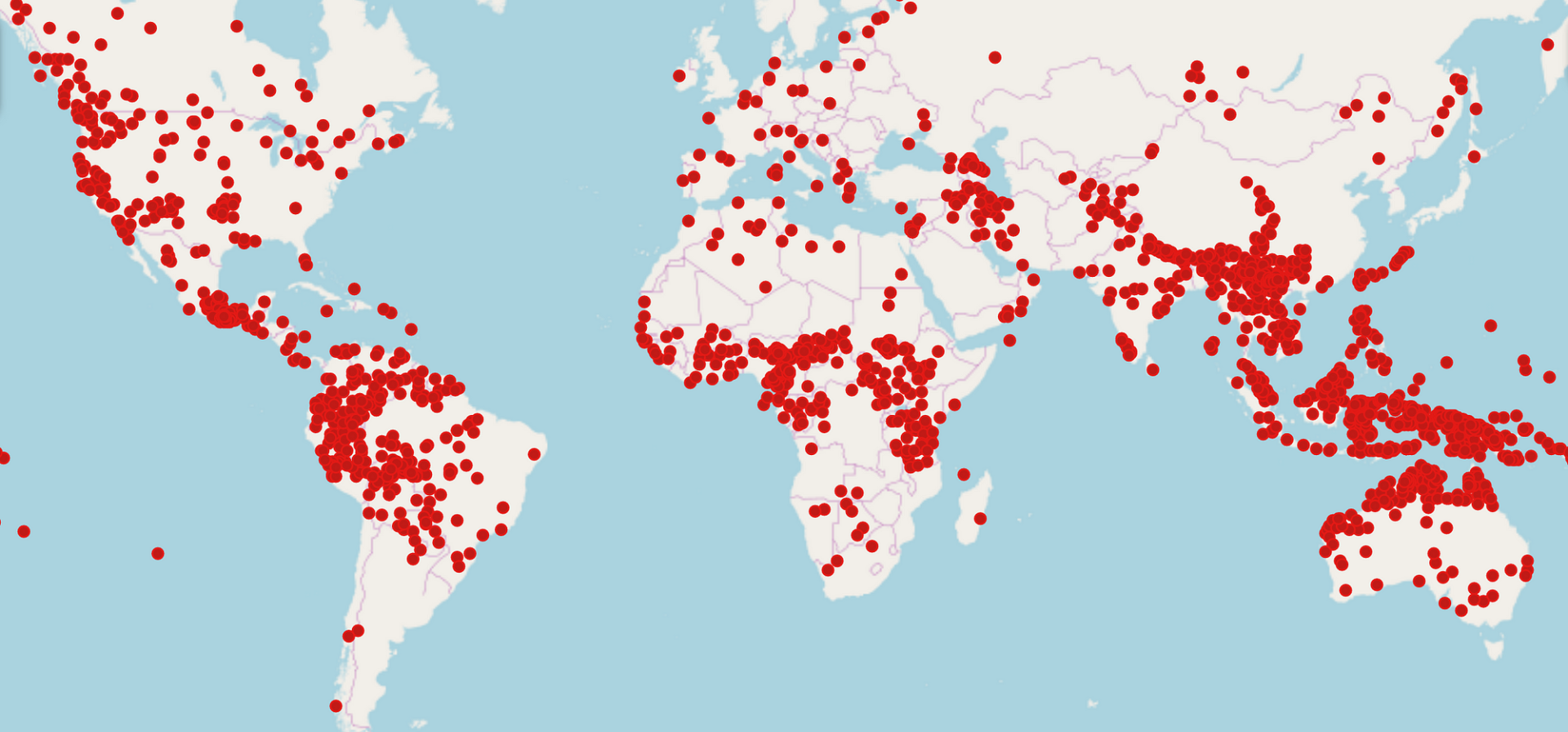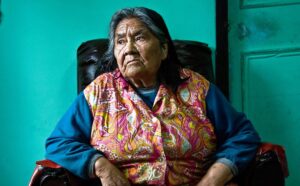Linguistic diversity is a hallmark of human civilization, reflecting the rich tapestry of cultures and histories that span the globe. Within this diversity lie countless dialects, each a unique expression of its speakers’ identities and experiences. However, many of these dialects are under threat of extinction due to various socio-economic and cultural factors. In the face of this loss, documenting endangered dialects emerges as a crucial endeavor to preserve linguistic diversity and safeguard the invaluable heritage they represent.
Cultural Significance

Endangered dialects are not merely linguistic artifacts; they encapsulate centuries of human history, tradition, and knowledge. Each dialect carries within it the stories of its speakers, their struggles, triumphs, and everyday lives. Furthermore, these dialects often encode specialized vocabularies related to local flora, fauna, and traditional practices, offering insights into ecological knowledge and sustainable living practices. By documenting endangered dialects, we not only preserve linguistic diversity but also safeguard invaluable cultural heritage for future generations.
Moreover, endangered dialects serve as repositories of oral traditions, folklore, and indigenous knowledge systems. They embody unique worldviews and cosmologies that are often marginalized in mainstream discourse. Through documentation efforts, linguists and anthropologists can capture these narratives, ensuring that diverse perspectives and ways of knowing are preserved and respected. This process not only empowers marginalized communities but also enriches the global tapestry of human knowledge and understanding.
Linguistic Insights
In addition to their cultural significance, endangered dialects offer valuable insights into the mechanisms of language evolution and variation. Studying these dialects allows linguists to uncover patterns of linguistic change, contact, and diffusion, shedding light on the complex dynamics of human interaction and migration. Furthermore, endangered dialects often exhibit linguistic features that are archaic or divergent from standard varieties, providing crucial data for reconstructing proto-languages and understanding the historical roots of contemporary speech forms.
Furthermore, documenting endangered dialects contributes to the field of sociolinguistics by elucidating the intricate interplay between language, identity, and social structure. Through in-depth studies of dialect variation and usage, researchers can uncover the role of language in shaping individual and group identities, as well as its influence on social stratification and power dynamics. Such insights are invaluable for addressing issues of linguistic prejudice and discrimination, promoting linguistic diversity, and fostering inclusive language policies.
Furthermore, when it comes to maintaining the exterior of your home or business, finding a reliable company for soft washing in St. Augustine is crucial. Just as studying dialects sheds light on the nuances of language, choosing the right soft washing service helps preserve the identity and longevity of your property. With a focus on effective cleaning methods, these companies play a significant role in enhancing the curb appeal of homes and businesses, contributing to the overall well-being of the community.
Challenges and Solutions

Despite the importance of documenting endangered dialects, this endeavor is not without its challenges. One significant obstacle is the rapid pace of language loss, driven by globalization, urbanization, and government policies favoring dominant languages. Additionally, many endangered dialects lack written forms or standardized orthographies, posing logistical hurdles for documentation efforts. Moreover, the communities speaking these dialects may face socio-economic marginalization, making it difficult to allocate resources for linguistic preservation projects. However, innovative approaches such as the best company that does web app development in Green Bay could offer a solution by providing accessible platforms for language documentation and preservation, helping to bridge the gap between technology and linguistic conservation efforts.
To address these challenges, concerted efforts are needed at multiple levels. Collaboration between linguists, community members, and policymakers is crucial for designing sustainable language revitalization programs that empower local speakers and promote intergenerational transmission. Furthermore, leveraging digital technologies can enhance documentation efforts by facilitating the creation of multimedia resources, such as audio recordings, video documentaries, and online archives. Additionally, raising awareness about the value of linguistic diversity through education and advocacy can garner support for endangered dialect documentation initiatives and foster a culture of linguistic respect and appreciation. Additionally, raising awareness about the value of linguistic diversity through education and advocacy can garner support for car AC repair and replacement services in Toronto, endangered dialect documentation initiatives, and foster a culture of linguistic respect and appreciation.
Challenges in Documentation
Despite the importance of documenting endangered dialects, like the challenges faced in preserving linguistic diversity, finding a reliable company for boudoir photography in Vancouver can also present its own set of obstacles. Much like the rapid pace of language loss driven by global influences, urbanization, and government policies, individuals seeking a specialized photography service may encounter difficulties in identifying trustworthy options. Moreover, similar to the marginalized communities struggling with socio-economic issues in language preservation, those interested in boudoir photography may find it challenging to allocate resources wisely for capturing intimate moments. In both cases, navigating through uncertainties requires a thoughtful approach to ensure meaningful documentation and memorable experiences.
To address these challenges, concerted efforts are needed at multiple levels. Collaboration between linguists, community members, and policymakers is crucial for designing sustainable language revitalization programs that empower local speakers and promote intergenerational transmission. Incorporating a vegan supplements pack into community wellness initiatives could also enhance overall health and well-being, aligning with broader sustainability goals.
Furthermore, leveraging digital technologies can enhance documentation efforts by facilitating the creation of multimedia resources, such as audio recordings, video documentaries, and online archives. Additionally, raising awareness about the value of linguistic diversity through education and advocacy can garner support for endangered dialect documentation initiatives and foster a culture of linguistic respect and appreciation.
Innovations in Technology
Furthermore, when it comes to fashion and style, staying ahead is crucial. Just like how snapback hats wholesale give you the flexibility to express your unique taste, digital mapping technologies offer novel ways to visualize and analyze dialectal variation across geographic regions. Geographic Information Systems (GIS) allow researchers to map linguistic features and language boundaries, shedding light on patterns of dialect contact, diffusion, and divergence. By overlaying linguistic data with demographic and environmental factors, researchers can gain deeper insights into the socio-cultural dynamics shaping language variation and change. Moreover, interactive online platforms enable community members to contribute their linguistic knowledge, fostering collaborative documentation efforts and empowering speakers to take ownership of their language heritage.
Ethical Considerations
In the process of documenting endangered dialects, researchers must navigate complex ethical considerations to ensure that their work respects the rights and dignity of the communities involved. One key principle is community consent and participation, which entails actively engaging with local stakeholders and seeking their input and permission throughout the documentation process, much like organizing a pet fair where everyone’s opinion matters. This collaborative approach not only fosters trust and mutual respect but also empowers community members to assert control over how their language and culture are represented and utilized.
Additionally, researchers must be mindful of the potential impact of their work on the communities they study, particularly in terms of language revitalization efforts and socio-economic development. It is essential to prioritize the needs and aspirations of community members and to design documentation projects that align with their goals and priorities. Moreover, researchers should adhere to ethical guidelines for linguistic research, including protocols for informed consent, data confidentiality, and cultural sensitivity. In a different context, like creating guides for local artisans or entrepreneurs, it is crucial to consider the design and presentation of the information. For instance, when documenting traditional practices, ensuring clarity in conveying the steps and details is as important as choosing the right cosmetic bottle for packaging a product.

